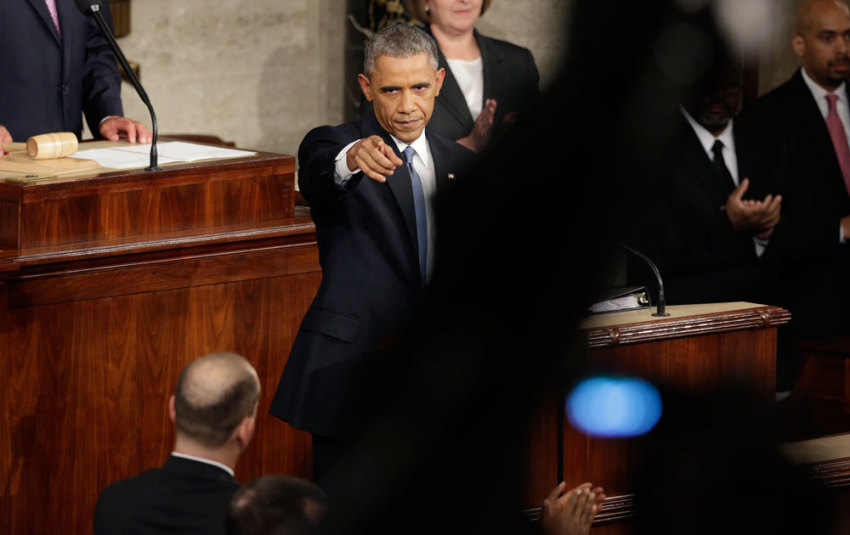Is Obama Waging War on Stay-at-Home Moms?

A tax proposal in President Barack Obama's State of the Union address led to a pundit debate over whether government does, or should, give preference to stay-at-home versus work-outside-home parents. The debate itself is a helpful illustration of the different views conservatives and liberals hold about government.
Among his several tax reform proposals, Obama argued for a $500 "second earner tax credit" for dual-income couples, in order to, according to the White House website, "help cover the additional costs faced by families in which both spouses work."
All the pundits engaged in the debate over this proposal acknowledge that the proposal itself has no chance of passage, given that Congress is controlled by Republicans. And the proposal is a small one (relative to the federal budget) to begin with. So the debate has mostly been about what the proposal itself says about Obama's priorities.
Since stay-at-home parents would not have the same tax credit, conservative Washington Examiner columnist Timothy Carney argued that Obama's proposal demonstrates that "he values working parents more than stay-at-home parents."
Bradford Wilcox, director of the National Marriage Project at the University of Virginia, made a similar point.
"The president's plan favors one model of combining work and family to the exclusion of other models. It offers tax relief only to families that fit a progressive model, and no tax relief to traditional families with young children and a mother at home," he said.
(Side note: The Census Bureau released a report this week showing that only 15 percent of American children had a stay-at-home mother and 0.6 percent had a stay-at-home father in 2014.)
On the liberal side, Josh Barro of The New York Times countered that stay-at-home parents already have a tax preference because the government does not tax the work they do. Barro does not argue that the government should start taxing the work of stay-at-home parents, because measuring their production would be difficult, intrusive and "politically toxic." Instead, Barro claims that Obama's proposal would make an unfair system slightly more fair.
"I realize that sounds like a bizarre thing to say," Barro acknowledged. "Why would there be a tax on parenting, and why would the lack of such a tax constitute a tax preference? But productive activities within the home are not especially different from the taxable work we do outside the home."
Writing for Forbes, John Goodman made a similar point: "One of the amusing anecdotes that all students learn in Econ 101 relates to the fact that house work is excluded from the official estimate of GDP. 'If a man marries his maid and she continues doing exactly what she did before, GDP goes down,' professors tell their students."
Bryce Covert, economic policy editor of ThinkProgress, a liberal advocacy group, agreed in an article for The Nation called, "No, Obama Isn't Waging a War on Stay-at-Home Mothers."
Citing Barro, Covert wrote, "the labor a mother or father performs in the home caring for a kid or wiping down a counter is unpaid and therefore goes untaxed. When two parents work outside the home and pay someone to watch their children, both those incomes are taxed."
The decision to not tax the labor of stay-at-home mothers demonstrates the generosity of the federal government, Covert concluded, because it shows that "we already value ... these women's choices."
In reaction to the notion that stay-at-home parents get a tax break because they do not have to pay taxes on their labor, conservatives argue that it is (and should be) income, not labor, that is taxed. (You do not, for instance, pay taxes when you wash your own car because you did not get paid to do so, even though there was labor involved. If you pay someone to wash your car, they owe taxes on their income.)
The Wall Street Journal's James Taranto pointed out that Obama's tax proposal is consistent with the liberal view of a large government with more influence in its citizen's daily lives.
From a liberal point of view, he wrote, "unpaid domestic labor looks like a lucrative, if entirely legal, tax shelter. The housewife (or husband, in the nontraditional scenario) could be at an office somewhere having taxes withheld from her paycheck. And that's not all: By stashing the kids in day-care centers and relying on restaurants for the family meals, the couple is helping employ an array of other workers whose wages the government can withhold for taxes. It's a win-win!"
This would not be the first time Obama implied that working outside the home should be the preferred choice for mothers. In an October speech he said that staying home to raise children is "not a choice we want Americans to make." His desire to provide a tax credit for choosing paid work over raising children full-time is, therefore, consistent with what he believes parents should choose.
The view that stay-at-home parents are a drain on federal revenue, because taxing their labor is impractical, is also consistent with the liberal notion that the government should have an expansive role in its citizen's daily life.
Should conservatives, on the other hand, take the opposite view and argue for a tax code that gives preference to the decision to stay home when raising children? Carney, for one, argues no.
"Here's the great thing about America: We don't have to decide which is better for everyone — we just have to decide for our own families. The tax code should be neutral on this choice," he wrote.



























